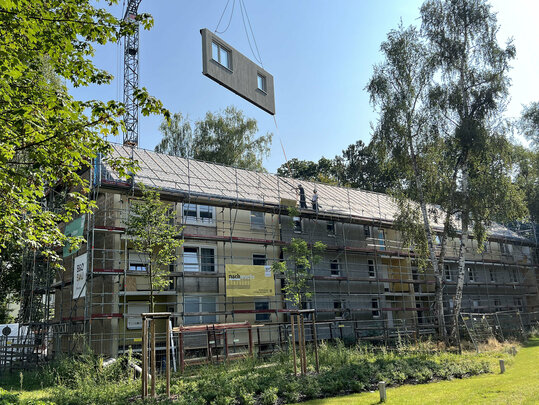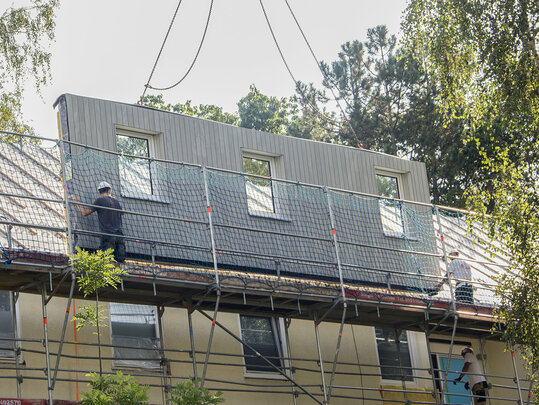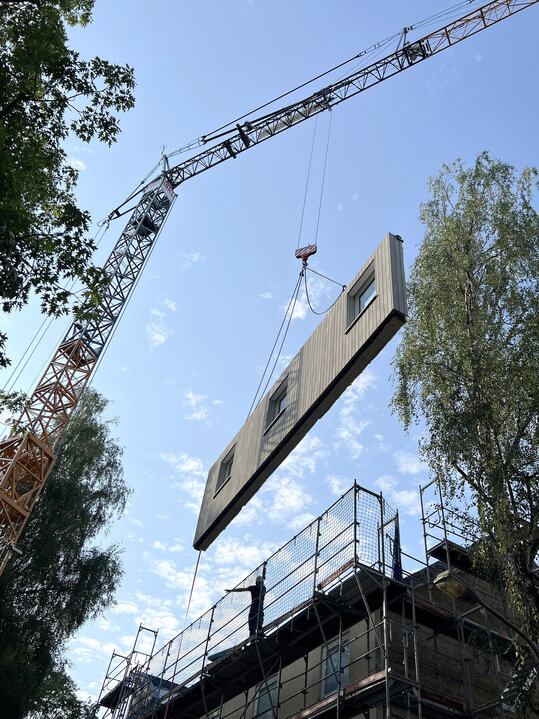The current situation in the housing industry is characterised on the one hand by the need to quickly make the existing housing stock climate-neutral, while on the other hand affordable rents should enable people to live comfortably. All of this is taking place against a backdrop of persistently high construction costs and interest rates. This also applies in particular to wbg Nürnberg GmbH Immobilienunternehmen as a municipal company with a special mandate.
‘Creativity is required here to achieve all these goals for the benefit of the environment and the people who live here. Based on projects already completed in our sector, we see modernisation as a new approach for our standardised existing buildings and are experimenting with serial refurbishment of existing buildings,’ explains wbg Managing Director Ralf Schekira at the construction site in Reinerzer Strasse in Nuremberg-Langwasser.
Industrially prefabricated facades
Serial refurbishment of existing buildings refers to the use of industrial production methods and standardised processes for modernisation or refurbishment projects in existing residential buildings. In this specific case, this means that the facade elements, including all windows, are manufactured on a large scale and then attached to the existing facade.
This use of prefabricated elements means that modernisation work is completed more quickly than with conventional methods. As much of the work takes place in the factory and construction elements only need to be installed on site, wbg minimises disruption and inconvenience for residents.
The modernisation includes improved thermal insulation, high-quality windows and more energy-efficient heating by converting from a one-pipe system to the modern two-pipe system. This ultimately leads to lower energy costs.
Recycled materials
Standardised production processes and the use of sustainable materials ensure better quality standards. Serial refurbishment also helps to reduce waste and utilise resources more efficiently, particularly through the use of recycled materials. The appearance of the building is changing, with the classic plaster facade giving way to a wooden facade.
‘We assume that this model will initially save us around eight weeks, reduce costs by around five per cent and thus reduce the burden on tenants,’ says Ralf Schekira with conviction.
Translated with DeepL.com (free version)




